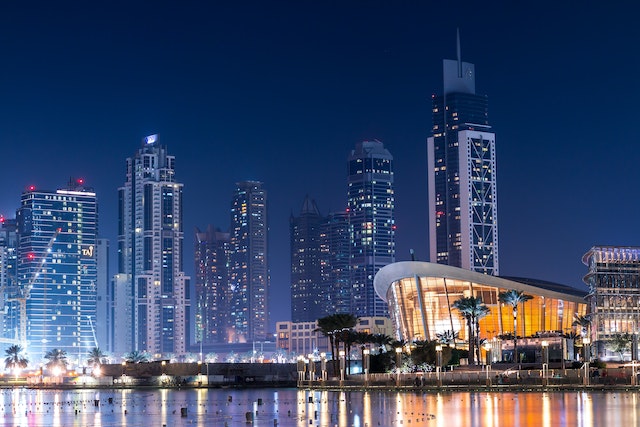- Understanding the MOL UAE?
- Labor Laws and Regulations in the UAE
- 1. Labor Contracts
- 2. Work Permits and Visas
- 3. Wages and Benefits
- 4. Working Hours and Rest Days
- 5. Termination and End of Service Benefits
- 6. Occupational Health and Safety
- Navigating Labor Disputes
- How MOL UAE impact businesses?
- Final Thoughts
MOL UAE is of one key player in this landscape is the Ministry of Human Resources and Emiratization (MOL UAE), the governmental body responsible for overseeing labor and employment matters in the UAE.
The United Arab Emirates (UAE) is a dynamic hub of business and innovation in the Middle East, attracting talent and investments from around the world. With a thriving economy, a commitment to diversification, and a strategic geographic location, it’s no wonder that individuals and businesses alike are drawn to the UAE. However, with these opportunities come specific regulations and considerations, particularly in the realm of labor and employment. In this comprehensive guide, we will delve into the world of MOL UAE, exploring its functions, regulations, and the essential information you need to navigate labor and employment in the UAE successfully.

Understanding the MOL UAE?
The Ministry of Human Resources and Emiratization (MOL UAE), previously known as the Ministry of Labor, plays a vital role in managing and regulating labor relations in the UAE. It is the governmental entity responsible for ensuring that both employees and employers adhere to the labor laws and regulations in the country.

Key Functions of MOL UAE:
- Labor Relations Management: MOL UAE handles all matters related to labor relations, from labor contracts to employee rights and employer obligations.
- Work Permits and Visas: The ministry is responsible for issuing work permits and managing the employment visa process for expatriates.
- Labor Dispute Resolution: MOL UAE provides a platform for addressing and resolving labor disputes between employees and employers.
- Setting Labor Policies: The ministry develops and updates labor policies and regulations to ensure the rights and welfare of both workers and employers.
- Promoting Employment Opportunities: MOL UAE is dedicated to increasing employment opportunities for UAE nationals through various initiatives.
- Protecting Employee Rights: The ministry ensures that employees’ rights, including fair wages, working conditions, and job security, are protected.
Labor Laws and Regulations in the UAE
Understanding the labor laws and regulations in the UAE is crucial for both employers and employees. Here are some key aspects:
1. Labor Contracts
Every employment relationship in the UAE is governed by a labor contract, which outlines the terms and conditions of employment, including job roles, responsibilities, compensation, and working hours. These contracts must be written in Arabic, and one copy is retained by MOL UAE.
2. Work Permits and Visas
For expatriates, securing a work permit and employment visa is mandatory. Employers typically initiate this process, and MOL UAE oversees the issuance of these permits. It is essential to ensure that your work permits and visas are up to date to avoid legal issues.
3. Wages and Benefits
UAE labor law sets specific guidelines for wages and benefits. This includes minimum wage levels, overtime pay, and end-of-service benefits for employees. Employers must adhere to these regulations.
4. Working Hours and Rest Days
The standard working week in the UAE is 48 hours, usually divided into six working days. Employees are entitled to at least one rest day per week. Overtime work is compensated as per the law.
5. Termination and End of Service Benefits
Termination of employment in the UAE follows specific rules and procedures. An employee’s end-of-service benefits depend on factors like the length of service and the reason for termination.
6. Occupational Health and Safety
Employers are responsible for providing a safe and healthy work environment. MOL UAE enforces occupational health and safety standards to protect workers.
Navigating Labor Disputes
Despite the best efforts of both employers and employees, labor disputes can arise. When this happens, it provides a platform for dispute resolution. Typically, the ministry’s mediation and conciliation department tries to resolve issues amicably. If an agreement cannot be reached, the case may proceed to the labor court.
It’s important to note that employees have rights and protection under UAE labor law. If an employer is found to be in violation of these rights, they may face penalties and legal consequences.

How MOL UAE impact businesses?
For businesses operating in the UAE, MOL UAE plays a significant role. Compliance with labor laws and regulations is not just a legal requirement but also an essential element of maintaining a positive reputation and a healthy work environment. Businesses that prioritize the well-being of their employees and adhere to labor laws tend to attract and retain top talent.
Here are some ways in which MOL UAE impacts businesses:
- Compliance: To operate legally in the UAE, businesses must adhere to labor laws, including work permit and visa regulations. Non-compliance can result in fines and legal issues.
- Workforce Management: This ensures that employers provide fair wages, safe working conditions, and other benefits to employees. This helps create a positive work environment and encourages employee retention.
- Recruitment: Employers rely on to process work permits and employment visas for expatriate workers, facilitating the hiring process.
- Dispute Resolution: In the case of labor disputes, businesses may be involved in the resolution process. Ensuring a fair and equitable resolution can contribute to a positive work culture.
Final Thoughts
The Ministry of Human Resources and Emiratization (MOL UAE) is a key player in the labor and employment landscape of the United Arab Emirates. Its functions encompass labor relations management, golden visa and work permit issuance, labor dispute resolution, and the development of labor policies and regulations. Understanding the labor laws and regulations in the UAE is essential for both employees and employers to ensure compliance and a fair, secure, and thriving work environment.
For businesses operating in the UAE, compliance with UAE regulations is not just a legal obligation but also a strategic choice. Prioritizing the rights and well-being of employees is a cornerstone of successful and sustainable business operations in this dynamic and growing nation. By adhering to labor laws and regulations, businesses can create a positive work culture, attract top talent, and contribute to the overall success of the UAE’s thriving economy.